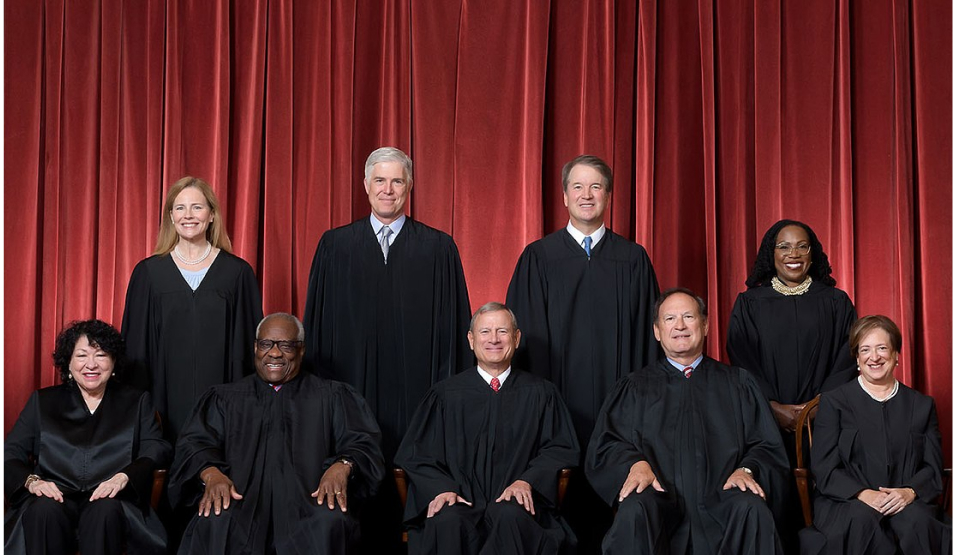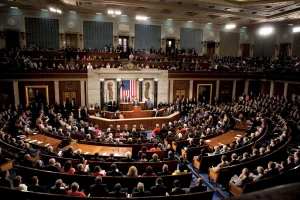In October 2025, the U.S. Supreme Court issued a pivotal ruling affecting the Temporary Protected Status (TPS) program for Venezuelan nationals living in the United States. This decision granted the federal government significant legal relief by allowing the administration to proceed with actions that had been blocked by a lower court. While the ruling represents a major legal and administrative victory for the executive branch, it is situated within a complex landscape of prior designations, court challenges, and ongoing appeals that continue to shape the status of thousands of Venezuelan migrants.
Temporary Protected Status is a program administered by the Department of Homeland Security (DHS) that allows individuals from countries experiencing conflict, natural disasters, or other extraordinary circumstances to remain in the United States temporarily. The program is designed to protect foreign nationals from being returned to unsafe conditions in their home countries. Venezuela, in particular, was designated for TPS due to political instability, economic crisis, and humanitarian challenges that made the safe return of its nationals untenable.
The origins of Venezuela’s designation under TPS trace back to 2021, when the Secretary of Homeland Security at the time assessed that the country met the statutory criteria for protection. This initial designation allowed Venezuelan nationals to remain in the United States temporarily, avoiding deportation while receiving certain work authorizations. Subsequent assessments and extensions were made in recognition of ongoing conditions, including additional TPS designations in 2023 and further extensions into 2025. These decisions were intended to provide stability for thousands of individuals whose home country continued to face extraordinary challenges.
In early 2025, the Trump administration, with Kristi Noem serving as Secretary of Homeland Security, moved to terminate the 2023 TPS designation for Venezuelan nationals. This action effectively rescinded protections that had previously been granted, paving the way for the potential removal of approximately 300,000 Venezuelan TPS holders from the United States. The administration justified the termination by asserting that conditions in Venezuela had changed sufficiently to no longer warrant temporary protection, arguing that continuation of TPS was not in the national interest.
Shortly after this announcement, a federal district court intervened to block the termination. U.S. District Judge Edward Chen of the Northern District of California issued an injunction preventing the immediate revocation of TPS. The court found that the administration’s reasoning relied on generalizations about migrants and included assessments that were unsupported by evidence, raising concerns of discriminatory assumptions. Judge Chen’s ruling highlighted procedural and substantive deficiencies in the approach taken by the Department of Homeland Security, emphasizing that agency actions must adhere to statutory guidelines and administrative law requirements.
The Supreme Court’s involvement came as part of an appeal filed by the administration seeking to override the lower court’s injunction. On October 3, 2025, the Court granted the federal government’s request for emergency relief, allowing the administration to proceed with the termination of the 2023 TPS designation while the appeal is litigated in the lower courts. This decision did not constitute a final judgment on the legality of the termination but provided temporary authority to implement the policy as litigation continues.
Justice Ketanji Brown Jackson issued a dissent from the Supreme Court’s order, reflecting concern over the decision to stay the lower court’s injunction. While the Court’s order represented a legal win for the administration, the dissent underscored the ongoing controversy surrounding the termination of TPS and the importance of judicial review in ensuring that executive actions conform to statutory and constitutional standards. The dissent also highlighted broader considerations about the treatment of vulnerable populations and the balance of power between the judiciary and the executive branch in overseeing immigration policy.
The Supreme Court’s ruling carries significant practical implications. While the emergency stay allows DHS to resume implementation of the termination, it does not automatically result in the immediate deportation of all affected Venezuelan nationals. Each individual case remains subject to procedural review, and ongoing litigation could alter the administration’s ability to remove specific TPS holders. The Court’s order simply removes the immediate barrier created by the lower court injunction, allowing the executive branch to carry out its policies under the supervision of appellate courts.
The broader context of this decision includes the complex history of Venezuela’s TPS designations. The initial 2021 designation, followed by extensions and a subsequent 2023 designation, created overlapping periods of protection for different cohorts of Venezuelan nationals. The administrative process involved assessments of both country conditions and individual eligibility, with DHS providing deadlines and procedures for affected individuals to maintain status or apply for work authorization. The interplay between these designations has been intricate, creating overlapping timelines and eligibility requirements that have required careful administrative management.
The termination of the 2023 TPS designation reflects a broader policy approach adopted by the administration, emphasizing the executive branch’s discretion in managing immigration and national security priorities. In its legal filings, the government argued that decisions regarding TPS involve sensitive, discretionary judgments that intersect with foreign policy considerations and broader national interest objectives. This perspective emphasizes the executive branch’s authority to determine eligibility criteria, evaluate conditions in foreign countries, and implement immigration policies consistent with statutory authority.
The administration’s position also underscores the legal rationale behind seeking Supreme Court intervention. By requesting emergency relief, the federal government sought to maintain the ability to implement its policy without further delay, arguing that the lower court’s injunction exceeded judicial authority and encroached on executive discretion. The Court’s decision to grant the stay temporarily resolves this tension, allowing the administration to exercise its policy judgments while preserving the appellate review process to address substantive legal questions.
DHS has reported that, following the Supreme Court order, the agency has resumed implementation of the termination and related procedures. According to agency statements, more than 527,000 individuals have been formally removed from the United States since the administration took office in January 2025, with an additional 1.6 million individuals departing voluntarily under administrative processes. These figures include a range of categories, including formal removals, voluntary departures, and departures facilitated by border enforcement. While the numbers reflect the agency’s reported outcomes, independent verification and contextual analysis are necessary to fully understand the scope and impact of these actions.
The Supreme Court’s decision has also generated discussion about the broader legal and ethical dimensions of immigration policy. Advocates for TPS recipients have raised concerns about the human impact of revoking protections, emphasizing that thousands of individuals who have established families, careers, and community ties in the United States could face significant hardship. Legal observers note that the ongoing litigation will continue to shape the parameters of executive authority and the application of administrative law principles in the context of immigration decisions.
In addition, the ruling highlights the continued importance of judicial oversight in balancing executive discretion with statutory obligations. TPS designations involve assessments of conditions abroad, legal standards for determining extraordinary and temporary circumstances, and compliance with administrative procedures. Courts play a critical role in ensuring that these decisions are made transparently, fairly, and in accordance with the law, providing a check on potential overreach by the executive branch.
The decision also serves as a reminder of the broader complexities of U.S. immigration policy, particularly as it relates to humanitarian protections and the treatment of vulnerable populations. TPS has historically served as a mechanism to shield individuals from forced return to unsafe conditions, and changes to this program can have profound effects on families and communities. Policymakers and the courts alike must weigh the competing priorities of national interest, executive discretion, and humanitarian considerations.
Looking forward, the Supreme Court’s action is unlikely to be the final chapter in this matter. Appeals in the lower courts will continue, and additional litigation may arise challenging aspects of the policy or its implementation. The ongoing judicial review will determine whether the termination of the 2023 TPS designation ultimately withstands legal scrutiny and whether further adjustments or protections are required to safeguard eligible individuals.
In conclusion, the Supreme Court’s October 2025 ruling represents a major legal victory for the Trump administration by allowing the implementation of its termination of Venezuela’s 2023 TPS designation while litigation continues. The decision reflects the interplay between executive discretion, judicial review, and statutory requirements governing Temporary Protected Status. While the ruling enables the administration to proceed with its policy, it does not constitute a final resolution and underscores the ongoing legal, administrative, and humanitarian complexities inherent in managing TPS programs. Thousands of Venezuelan nationals remain affected, and the broader implications for immigration policy, executive authority, and judicial oversight continue to unfold as the courts and government agencies navigate this evolving issue.

Emily Johnson is a critically acclaimed essayist and novelist known for her thought-provoking works centered on feminism, women’s rights, and modern relationships. Born and raised in Portland, Oregon, Emily grew up with a deep love of books, often spending her afternoons at her local library. She went on to study literature and gender studies at UCLA, where she became deeply involved in activism and began publishing essays in campus journals. Her debut essay collection, Voices Unbound, struck a chord with readers nationwide for its fearless exploration of gender dynamics, identity, and the challenges faced by women in contemporary society. Emily later transitioned into fiction, writing novels that balance compelling storytelling with social commentary. Her protagonists are often strong, multidimensional women navigating love, ambition, and the struggles of everyday life, making her a favorite among readers who crave authentic, relatable narratives. Critics praise her ability to merge personal intimacy with universal themes. Off the page, Emily is an advocate for women in publishing, leading workshops that encourage young female writers to embrace their voices. She lives in Seattle with her partner and two rescue cats, where she continues to write, teach, and inspire a new generation of storytellers.









